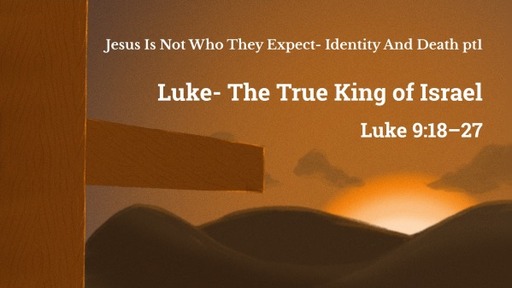Jesus Is Not Who They Expect- Identity And Death

I. Introduction
Update on life
1. Prayers
2. Catch-
3. Review of the book
II. Jesus teaches who He is through questions and corrections
1. Jesus’ teaching moment (18-20a)
Jesus example of prayer (18)
Jesus practice of questions (19-20a)
When teaching, Jesus himself asked questions. Standing before the chief priest and elders—people who needed to reconsider their understanding of the Scriptures in order to accept him—Jesus says: “I also will ask you one question, and if you tell me the answer, then I also will tell you by what authority I do these [miraculous] things. The baptism of John, from where did it come? From heaven or from man?” (Matt 21:24–25 ESV). For Jesus, questions were a necessary part of teaching
Questioning everything only produces doubt if we don’t believe there are answers. But having confidence to find answers transforms our questions into a pursuit of truth, and our questions can ultimately reveal the one who is the truth—Christ (John 14:6).
There was no agreement as to who Jesus was. They don’t know who he is, but they do recognize that he is extraordinary. The public has recognized that Jesus is at least a prophet.
the Watergate conspiracy in the 1970s. The events surrounding the Watergate scandal are informative. Charles Colson and other confidants were involved in a conspiracy to protect President Richard Nixon from prosecution. But with the mere threat of imprisonment hanging over them, Nixon's closest advisers and friends quickly turned state's evidence and admitted to the conspiracy. People were not willing to suffer (let alone suffer death) for something they knew to be a lie.
The knowledge of Christ is always a personal discovery, not the passing on of a report learnt from other people.
